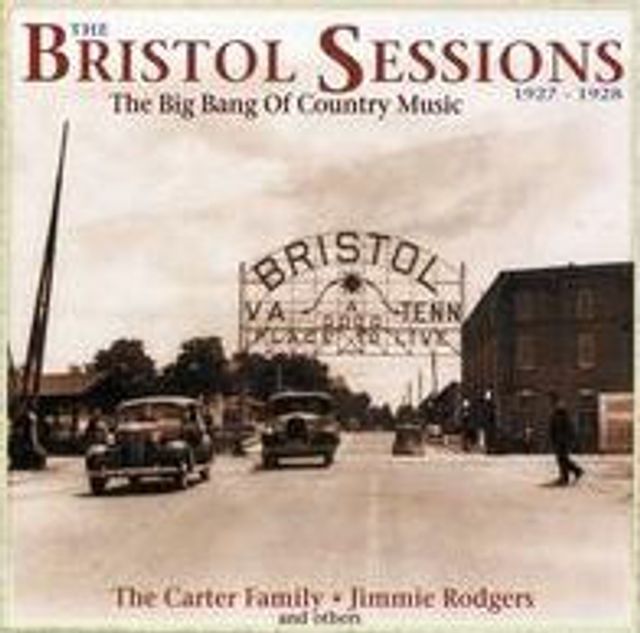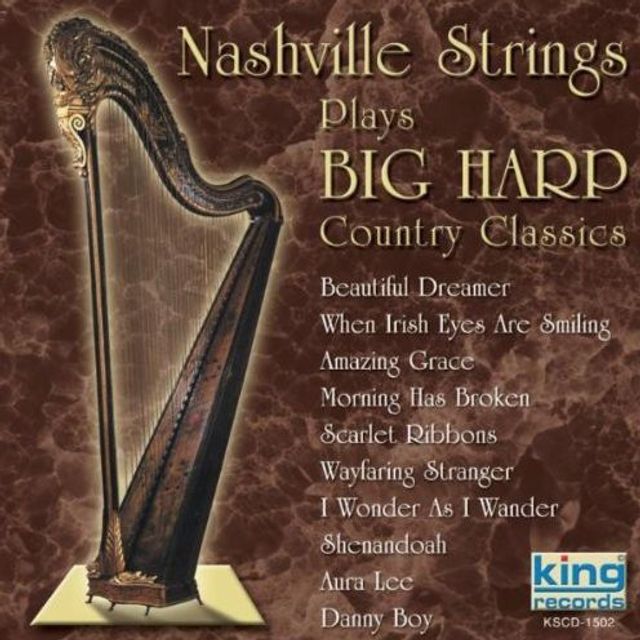Home
The Bristol Sessions: The Big Bang of Country Music 1927-1928
Loading Inventory...
Barnes and Noble
The Bristol Sessions: The Big Bang of Country Music 1927-1928
Current price: $176.99


Barnes and Noble
The Bristol Sessions: The Big Bang of Country Music 1927-1928
Current price: $176.99
Loading Inventory...
Size: OS
*Product Information may vary - to confirm product availability, pricing, and additional information please contact Barnes and Noble
In 1927,
Victor Records
, under the direction of producer
Ralph Peer
, headed to Bristol, Tennessee to record local musicians.
Peer
had been on similar journeys before, and he would be since, but those
Bristol Sessions
were pivotal, the epicenter of modern country music establishing the sound and style of the genre. Legendary as they are, they've never been collected in a single place prior to
Bear Family
's remarkable 2011 box set
The Bristol Sessions 1927-1928
, a five-disc set that collects all of
Victor
's Bristol recordings of those two years. Among the artists
and
captured during their session were
Jimmie Rodgers
the Carter Family
, an event of such historical significance it tends to overshadow the wealth of other recordings. By its very scope,
illustrates that there was much, much more to the
than these two artists, no matter how legendary they wound up to be.
recorded almost any artist that crossed his path on the Tennessee/Virginia border, and a couple of these appeared far more often than the
Carters
or
Rodgers
.
Ernest Stoneman
and his family and
Ernest Phipps
fronted more sessions than their more famous peers, the former solicited by
before he headed down to Bristol, to ensure that there was something to capture once he was there.
recorded quite a bit in 1927, then headed down to the town again in 1928 to see if he could draw more gems from the mine. He did: he recorded several acts he'd already captured in 1927, but there was enough new material from the old artists and the new to add to the legacy.
And the legacy is certainly rich; so rich that it acquired a legacy even without a set like
's
The Bristol Sessions
to urge it along.
's box doesn't challenge the conventional notions, it sets it in stone, the first heavy proof of the depth and scope of
's musical anthropology. Commonly acknowledged as the ground zero of modern country music,
doesn't dispel the notion that these
recordings were monumental. Much of what came to be known as country music is here, from the sound to the sensibility, and if they don't sound modern the way that
Hank Williams
records from three decades later do, they nevertheless point the way to the modern era, creating a bridge from old-timey folk to modern country. As such,
certainly carries a lingering scent of musty academia; its historical importance surely outweighs its entertainment value. Yet, that doesn't matter: this is music that justifies its weight, and in this
set,
are finally given a presentation that is worthy of its importance and explains its significance, as well. ~ Stephen Thomas Erlewine
Victor Records
, under the direction of producer
Ralph Peer
, headed to Bristol, Tennessee to record local musicians.
Peer
had been on similar journeys before, and he would be since, but those
Bristol Sessions
were pivotal, the epicenter of modern country music establishing the sound and style of the genre. Legendary as they are, they've never been collected in a single place prior to
Bear Family
's remarkable 2011 box set
The Bristol Sessions 1927-1928
, a five-disc set that collects all of
Victor
's Bristol recordings of those two years. Among the artists
and
captured during their session were
Jimmie Rodgers
the Carter Family
, an event of such historical significance it tends to overshadow the wealth of other recordings. By its very scope,
illustrates that there was much, much more to the
than these two artists, no matter how legendary they wound up to be.
recorded almost any artist that crossed his path on the Tennessee/Virginia border, and a couple of these appeared far more often than the
Carters
or
Rodgers
.
Ernest Stoneman
and his family and
Ernest Phipps
fronted more sessions than their more famous peers, the former solicited by
before he headed down to Bristol, to ensure that there was something to capture once he was there.
recorded quite a bit in 1927, then headed down to the town again in 1928 to see if he could draw more gems from the mine. He did: he recorded several acts he'd already captured in 1927, but there was enough new material from the old artists and the new to add to the legacy.
And the legacy is certainly rich; so rich that it acquired a legacy even without a set like
's
The Bristol Sessions
to urge it along.
's box doesn't challenge the conventional notions, it sets it in stone, the first heavy proof of the depth and scope of
's musical anthropology. Commonly acknowledged as the ground zero of modern country music,
doesn't dispel the notion that these
recordings were monumental. Much of what came to be known as country music is here, from the sound to the sensibility, and if they don't sound modern the way that
Hank Williams
records from three decades later do, they nevertheless point the way to the modern era, creating a bridge from old-timey folk to modern country. As such,
certainly carries a lingering scent of musty academia; its historical importance surely outweighs its entertainment value. Yet, that doesn't matter: this is music that justifies its weight, and in this
set,
are finally given a presentation that is worthy of its importance and explains its significance, as well. ~ Stephen Thomas Erlewine








